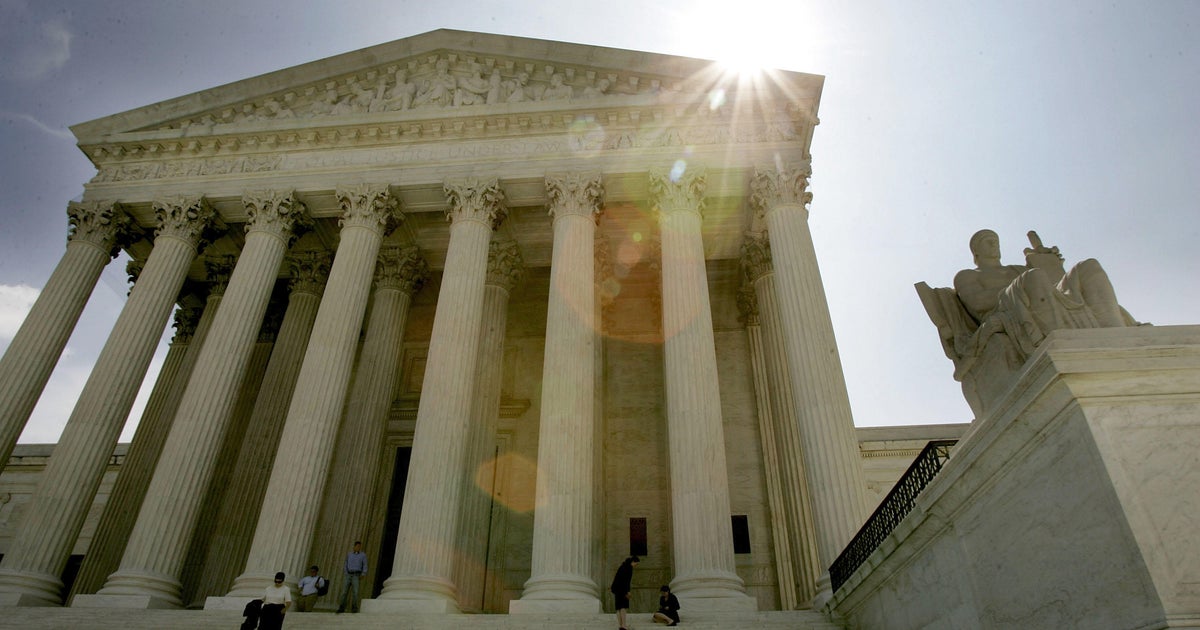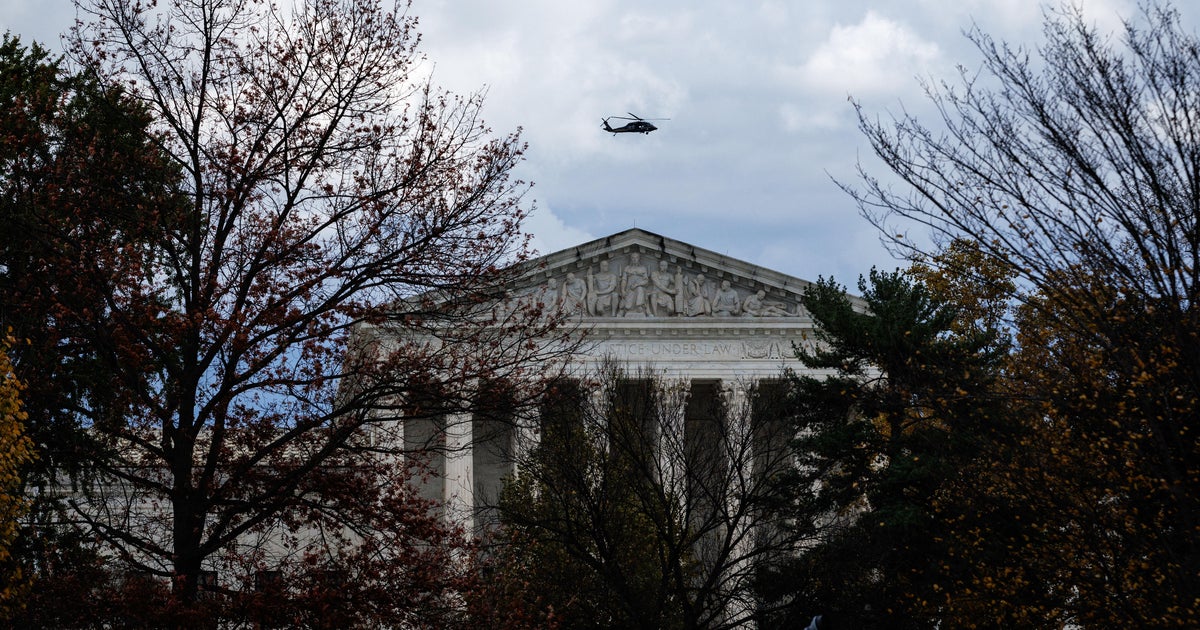Supreme Court strips SEC of key enforcement power to penalize fraud
Washington — The Supreme Court on Thursday ruled against the Securities and Exchange Commission in a dispute over the agency's ability to use in-house tribunals to seek civil penalties against defendants for securities fraud, stripping the agency of a key enforcement tool.
The court ruled 6-3 against the SEC in the case, finding that the Seventh Amendment entitles a defendant to a jury trial. The court split along ideological lines, with Chief Justice John Roberts writing for the conservative majority.
"A defendant facing a fraud suit has the right to be tried by a jury of his peers before a neutral adjudicator," Roberts wrote for the court. He said that allowing the executive branch to play the role of prosecutor, judge and jury — as in enforcement proceedings conducted by the SEC internally — is the "very opposite of the separation of powers that the Constitution demands."
Justice Sonia Sotomayor authored a dissenting opinion, a summary of which she read from the bench. Joined by Justices Elena Kagan and Ketanji Brown Jackson, Sotomayor wrote that for years, Congress has allowed an agency to impose civil penalties and warned the majority's decision would unleash "chaos." She criticized the ruling as a "power grab."
"The majority today upends longstanding precedent and the established practice of its coequal partners in our tripartite system of government," Sotomayor wrote. She accused the court of failing to act as a "neutral umpire," which seemed to be a reference to Roberts' assertion during his 2005 confirmation hearing that judges are like umpires who "call balls and strikes."
SEC v. Jarkesy
The case, known as SEC v. Jarkesy, was one of several before the Supreme Court this term that challenged the actions of federal agencies and threatened to curtail their power. It has yet to rule in a pair of cases in which the justices were asked to overrule a 40-year-old decision that requires courts to defer to an agency's interpretation of an ambiguous statute if it is reasonable.
This dispute involved the ways in which the SEC enforces securities laws: through civil actions brought in federal district court or through internal proceedings overseen by in-house administrative law judges. These judges, appointed by the SEC in this case, can be removed only for "good cause established and determined by the Merit Systems Protection Board," whose three members are appointed by the president and can be removed "only for inefficiency, neglect of duty, or malfeasance in office."
The case arose in 2013, when the SEC brought an administrative proceeding against George Jarkesy, the founder of two hedge funds with roughly 120 investors and $24 million in assets. An administrative law judge at the SEC was assigned the proceeding and found that Jarkesy violated several securities laws. He was eventually ordered to pay a civil penalty of $300,000 and his advisory firm, Patriot28, also had to repay nearly $685,000 in what the SEC determined were illicit gains.
Jarkesy appealed the decision to the U.S. Court of Appeals for the 5th Circuit, as allowed under the law, which tossed out the SEC's findings on three different constitutional grounds. In a divided ruling, the appeals court found that the SEC's proceedings violated the Seventh Amendment right to a jury trial and held that Congress improperly delegated power to the SEC when it allowed the agency to conduct the internal tribunals in certain matters or bring a case in district court. Lastly, the 5th Circuit ruled that the limits on the removal of the SEC's administrative law judges were unconstitutional.
The SEC appealed the decision to the Supreme Court and asked it to review the three constitutional issues in late November. But much of the argument session before the justices involved Jarkesy's claim that Congress violated the Seventh Amendment by allowing the SEC to conduct in-house administrative proceedings.
The court said that because the answer to the Seventh Amendment question resolves the case, it did not have to address the remaining issues.
Jarkesy cheered the Supreme Court's ruling as demonstrating that the "Constitution still matters."
The case threatened to upend the work of administrative law judges that work in federal agencies, including the Occupational Safety and Health Administration, Social Security Administrative and Environmental Protection Agency.
Addressing that risk, Sotomayor noted that in the past 50 years, Congress has enacted many statutes that empower federal agencies to impose civil penalties for statutory violations. There are more than two dozen agencies that can levy such punishments in administrative proceedings.
The majority's decision, she said, jeopardizes the constitutionality of those statutes and could strip agencies of their power to enforce the laws enacted by Congress.
"Today's ruling is part of a disconcerting trend: When it comes to the separation of powers, this court tells the American public and its coordinate branches that it knows best," Sotomayor wrote. "The court tells Congress how best to structure agencies, vindicate harms to the public at large, and even provide for the enforcement of rights for the government."
In a nod to the ongoing criticisms by the conservative legal movement about the power of federal agencies, Sotomayor said arguments about the benefits of a scheme like that at the SEC are taking place against a backdrop of a philosophical and "perhaps ideological" debate about the ability of the federal government to respond to society's evolving problems.
"The American people should not mistake judicial hubris with the protection of individual rights," Sotomayor wrote in dissent.



